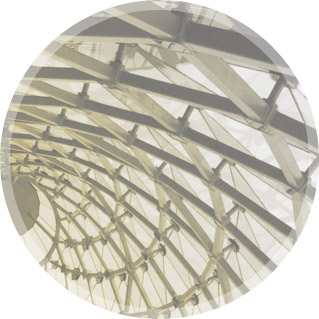Cornell University
Department of Architecture
In Cornell University's College of Architecture, Art, and Planning, we teach and practice architecture, fine arts, and city and regional planning as creative and powerful forces with the potential to improve the world. We prepare our students to address the complex problems of the 21st century through the application of the art and science of design. Providing rigorous theoretical training and studio experiences, we encourage imagination, technical creativity, critical thinking, a sense of history, and the development of a social, ethical, and artistic perspective. We advocate for the rights of all communities and all individuals to participate in the planning of their futures. We prepare our graduates for their role as world citizens in a diverse yet inclusive society.
http://aap.cornell.edu/academics/architecture
Setting
As an Ivy League university and also the land grant institution of New York state, Cornell has a unique combination of public and private divisions. Cornell's vast array of opportunities for study makes possible the pursuit of nearly any field of knowledge. The university attracts an outstanding faculty and brings to the campus each year a host of distinguished scholars, artists, and practitioners to present lectures and concerts. These along with other cultural and sporting events form a continuous part of university life.
The small-town setting of the university in Central New York—its main campus framed by two dramatic gorges and situated on a hillside overlooking Cayuga, one of the Finger Lakes—puts Cornell students in closer touch with the natural environment than would occur on many campuses. For architecture students, these natural and rural surroundings are balanced by participation in field trips, the Cornell in Rome program, the AAP NYC program, and frequent summer travel programs, all of which offer invaluable opportunities for study in a larger urban context.
School Philosophy
Architectural education at Cornell is about balance: between philosophy and pragmatism, between virtual and physical creative realms, between refined tradition and transcendent vision.
Cornell's architecture program is one of the oldest, most respected, and best endowed, but it also thrives in the midst of the university that Newsweek dubbed the "Hottest Ivy." Cornell earned that designation in part for its emphasis on solving real-world problems as well as theoretical ones and for working to incorporate environmental sustainability into every aspect of campus life. Cornell is unmatched for enabling access to collaboration across disciplines and colleges.
Cornell's architecture program encourages off-campus study initiatives in Asia, Africa, and South America as well as at our own facilities in central Rome and New York City. Research domains in the Department of Architecture include ecology, urbanism, building technology, advanced computation, and architectural history. Studio culture values criticism, ethics, and intellectual diversity.

Programs
B.Arch.:
For undergraduates in the five-year professional Bachelor of Architecture degree program, design is the focal point of every semester. Basic conceptual skills are emphasized early on, along with introducing the elements of architecture. This highly focused and intensive curriculum also emphasizes theory, history, and building technology. Simultaneously, it is a constituent within a world-class research university and students are encouraged to take advantage of its wider resources. Faculty-led study-abroad opportunities are further highlights of the design program. Undergraduates complete their studies with supervised thesis projects in their final year.
M.Arch. (Professional):
The professional NAAB-accredited Master of Architecture program, is committed to the view that the question of appropriate practice must be continually investigated and reassessed in today's globally expansive and technologically dynamic context. Placing this question at the center of the learning process, the program offers bachelor's degree holders from any field a rich curriculum dedicated to building broad-based expertise and complemented by six semesters of design studios. The intensive course of study encourages the development of individual research trajectories and culminates in a design thesis.
M.Arch. II (Post-Professional):
Cornell's three-semester post-professional master of architecture is an intensive advanced design research (ADR) program. Open to individuals holding a B.Arch. or first-professional M.Arch. degree, the program offers a critical framework for investigating pertinent design concerns, practices, and technologies in 21st-century architecture and urbanism. A structure of core and elective studios and courses allows students to pursue trajectories of inquiry within one of three interrelated territories of investigation: Architecture & Urbanism, Architecture & Ecology, and Architecture & Discourse. Interdisciplinary in intent and content, the ADR program engages the wealth of academic resources in AAP, across Cornell University, and throughout an extensive global network.
M.A. / Ph.D. HAUD:
The history of architecture graduate program provides opportunities for the dialogue between various programs and constituencies within the college as well as the greater university. The program is committed to the study of the built environment and cultural landscape from the point of view of cultural history. As is evidenced in lectures and seminars, faculty research and student projects, there is a sustained interest in analyzing the cultural context of the built domain—whether at the scale of the building, cities or landscapes, both monumental and mundane.

of Focus
1. History | Theory | Criticism
2. Urbanism
3. Digital Fabrication & Technology
4. Resilience
5. Sustainability & High Performance Build Enviroments

Opportunities

Facilities

Policies
Transfer Policies
Admission to the B.Arch. program is offered to a limited number of transfer applicants who have either completed a portion of their architecture studies in other schools or have developed a strong, well-thought-out interest in architecture but have no formal education in the discipline. Each applicant’s case is considered individually. Placement is determined by the faculty admissions committee based on the applicant’s portfolio and the amount of architecture coursework completed.
Credit for many courses can be transferred, but applicants must complete a minimum of 70 credits and four terms in residence. Thirty-five of the 70 credits must be taken in the Cornell architecture department.
Transfer applicants may submit a request for either an on-campus or an off-campus interview.
Important information for transfer applicants:
Students considering a transfer into the B.Arch. program should be aware that, if admitted, a transfer credit evaluation will take place. This process requires syllabi from any class for which an admitted student seeks credit, as well as a portfolio of work for any studio or visual representation classes. Applicants should prepare these materials in advance so they can be submitted promptly if an offer of admission is made. Admitted transfer students will have two weeks from the date of admission to submit all transfer credit materials. AAP will not accept transfer credit materials before an offer of admission is made.


